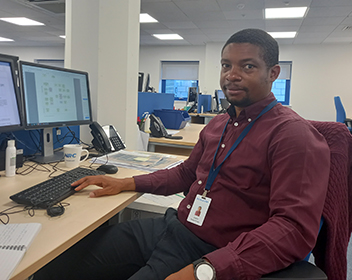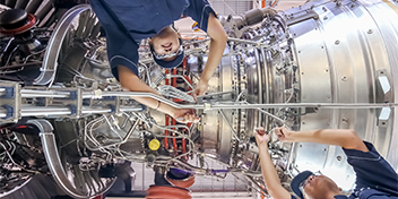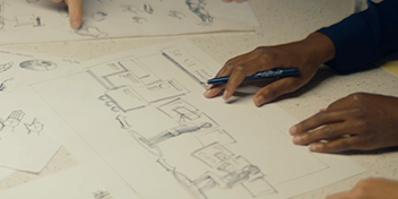
Education and qualifications:
MSc Safety and Reliability Engineering, University of Aberdeen
B.ENG Electrical Electronics Engineering, Madonna University, Nigeria
Job title:
Technical Safety Engineer
Employer:
Shell UK
Published: 08/10/2024

MSc Safety and Reliability Engineering, University of Aberdeen
B.ENG Electrical Electronics Engineering, Madonna University, Nigeria
Technical Safety Engineer
Shell UK
My Dad was an Electrical Engineer and at the time worked for an electrical manufacturing company. As a kid, I would watch Dad carry out repairs on faulty electrical appliances within the house. I was his little helper holding the tools ready to hand them over when required. As a result, I developed an interest in problem solving and this stayed with me through college and university.
My role is to provide technical safety support to the Shell onshore gas plants i.e. St Fergus, Mossmorran and Braefoot Bay. I am responsible for the safety engineering activities that support operations to meet the company objectives. My responsibilities include providing independent technical safety engineering advice to ensure risk to personnel – including major accident hazards – are effectively assessed, evaluated and managed in accordance with relevant statutory and corporate requirements. My role also includes providing expert advice relating to design integrity, technical integrity and operating integrity, as well as participating in audits, health checks, technical reviews and incident investigations.
The oil and gas industry in itself is challenging especially for production assets located and operating in harsh environmental and weather conditions. Oil and gas is a highly regulated industry, there is a requirement to adhere to strict standards of safety for personnel and a duty of care for the environment. As part of my role is to ensure compliance with regulatory requirements in engineering design and operation, this is critical to the safety of personnel and the environment.
I love my job. I am very passionate about my role and I get satisfaction at the end of a workday having had no incident on the asset and people can go back home safely to their families. My main goal is always to ensure the safe operation of our asset. Each day of an incident/injury-free asset brings a sense of fulfilment.
My greatest professional achievement was successful registration as a Chartered Engineer (CEng). Since working as a graduate engineer eight years ago, my goal has been to become a CEng, and I gained the necessary skills and competences required for CEng registration. My development continued by following a career path which provided some professional guidance including a post-graduate program.
Early in my career, I started working for an Engineering Procurement and Construction (EPC) company within the oil and gas industry. As a graduate engineer, we were encouraged to work towards professional registration by following a structured program developed by the company. I recognised that achieving chartered status would demonstrate my competence, and I was rewarded with a promotion and added responsibility for becoming a CEng.
Becoming registered quantifies your professional development. It creates opportunities, identifies the individual as adding value to their employer, and demonstrates competence to the wider industry.
Make an effort to expand your network within the industry i.e. attend industry-organised conferences and workshops etc.
I support colleagues who show an interest in attaining chartered status by mentoring and providing professional advice.

Being professionally registered demonstrates your commitment, enhancing your knowledge, skills and competence for the engineering needs of today.

Read our case studies from your peers about the benefits of professional registration!

Interested in finding out more? Join a Licensed PEI to start your journey today.